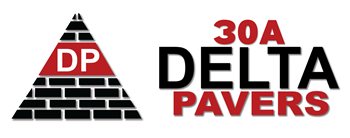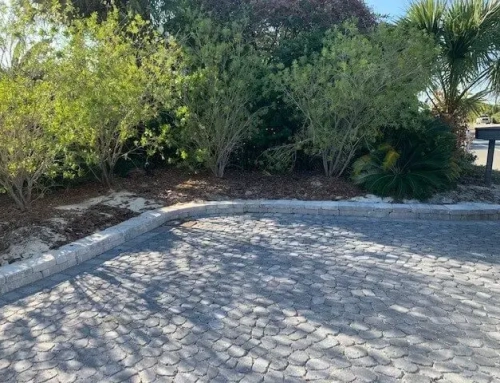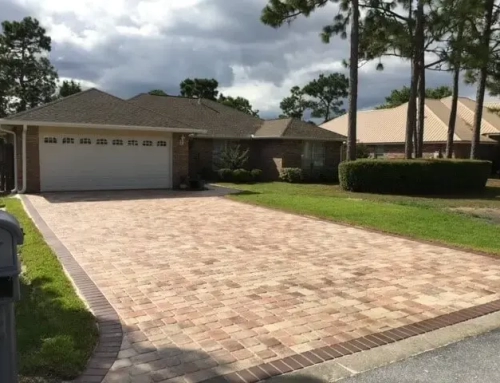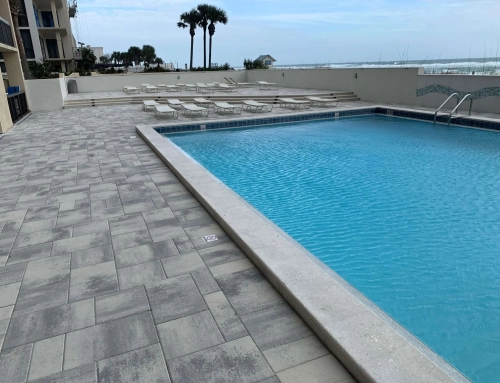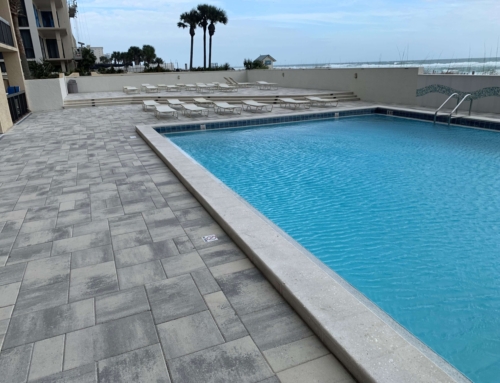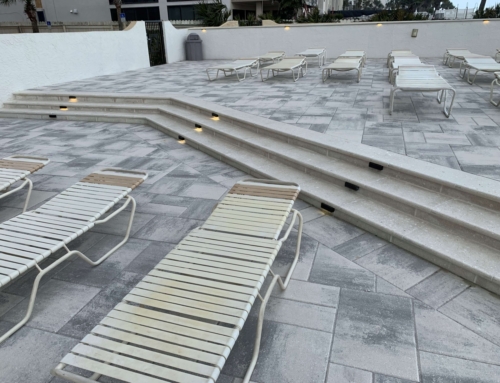Understanding the costs associated with installing a paver pool deck and spa area is crucial for budgeting and planning your project. While paver decks offer numerous benefits, they can be more expensive upfront compared to other materials. Here’s a detailed breakdown of the costs involved:
Cost Breakdown
The total cost of a paver pool deck and spa area will depend on several factors, including the size of the area, the type of pavers chosen, and whether you opt for professional installation or a DIY approach:
- Materials Cost:
- Pavers: The cost of pavers varies depending on the material. Concrete pavers typically cost between $2 to $10 per square foot. Natural stone pavers, such as travertine or granite, can range from $10 to $30 per square foot. Brick pavers fall somewhere in between, usually costing between $4 to $8 per square foot.
- Gravel Base: The gravel used for the base typically costs around $1 to $2 per square foot.
- Sand: Sand for leveling and filling joints usually costs $0.50 to $1 per square foot.
- Sealer: If you choose to seal your pavers, expect to pay between $0.50 and $1 per square foot for the sealer.
- Labor Costs:
- Professional Installation: Hiring a professional to install your paver pool deck and spa area can significantly add to the cost but ensures a high-quality, long-lasting result. Labor costs generally range from $10 to $20 per square foot, depending on the complexity of the design and local labor rates.
- DIY Installation: If you have the skills and time, installing the deck yourself can save on labor costs. However, be prepared for a labor-intensive project, and consider renting specialized equipment, such as a plate compactor, if you don’t already own it.
Factors Affecting Cost
Several factors can influence the overall cost of your paver pool deck and spa project:
- Size and Complexity: The larger and more complex the design, the more materials and labor will be required, leading to higher costs. Features such as curved edges, custom patterns, or multiple levels will increase both material and installation costs.
- Paver Material: The type of paver you choose will significantly impact the cost. Natural stone pavers, while beautiful and durable, are generally more expensive than concrete or brick options.
- Additional Features: Incorporating features like fire pits, outdoor kitchens, lighting, or built-in seating areas will add to the cost of the project. These enhancements can increase both the material and labor costs, but they also add functionality and aesthetic value to the space.
- Site Preparation: If your site requires significant grading, excavation, or drainage solutions, these tasks can add to the overall cost. Proper site preparation is essential for ensuring the stability and longevity of your paver deck.
Budgeting Tips
Here are some tips to help you manage costs and stay within your budget:
- Choose Cost-Effective Materials: If budget is a concern, opt for concrete pavers, which are generally less expensive than natural stone but still offer durability and design flexibility.
- Simplify the Design: While intricate designs and custom features are appealing, they can quickly drive up costs. Consider simplifying the design or focusing on one or two standout features to keep costs manageable.
- Do Some Prep Work Yourself: If you’re comfortable with basic landscaping tasks, consider doing some of the site preparation yourself, such as excavation or base installation, to save on labor costs.
- Get Multiple Quotes: If hiring a professional, obtain quotes from several contractors to ensure you’re getting a fair price. Be sure to compare not just the cost but also the quality of materials and workmanship offered.
Long-Term Value
While paver pool decks may have a higher upfront cost compared to other materials, they offer long-term value through durability, low maintenance, and enhanced aesthetics. A well-installed paver deck can last for decades with proper care, providing a good return on investment, especially if you plan to sell your home in the future.
